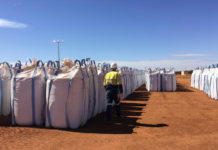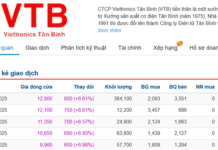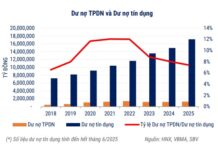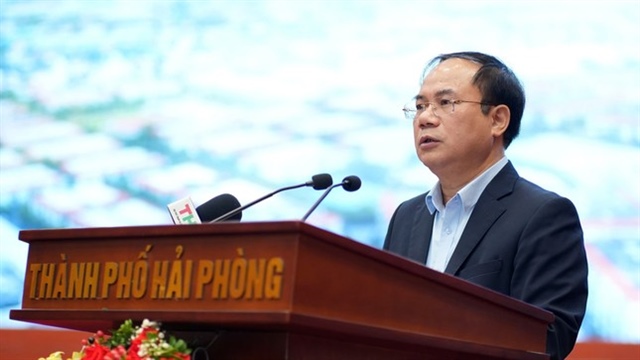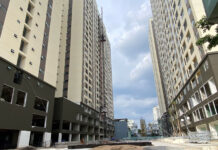Speaking at the workshop “Hai Phong – A Bright Spot in Social Housing Development” hosted by Tien Phong newspaper on the morning of August 16, Deputy Minister of Construction Nguyen Van Sinh appreciated the newspaper’s initiative to organize the workshop at this time. He emphasized the importance of various laws related to land, housing, real estate business, and credit institutions, which provide a solid foundation for promoting housing projects and the real estate market, including social housing.
Mr. Sinh highlighted the attention given by the government, National Assembly, and relevant authorities to the development of social housing. He mentioned the government’s initiative to invest in at least one million social housing units by 2030. This provides a crucial framework for local authorities and businesses to address housing needs, especially for workers, laborers, and low-income earners.
The Deputy Minister also acknowledged the challenges and obstacles in developing social housing, particularly regarding policies and regulations, which have impacted the progress of local authorities and investors. However, he noted that the legal system has been improved and refined over time.
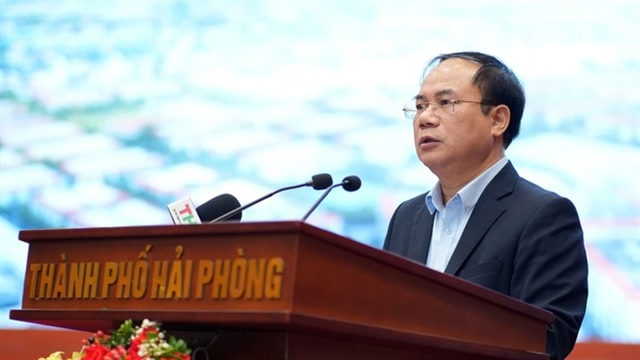
Deputy Minister of Construction Nguyen Van Sinh delivering his speech. |
Specifically, the legal system has incorporated the Party and State’s guidelines on housing, especially for low-income earners. Secondly, contradictions and overlaps in the laws have been addressed, ensuring a more harmonious and coherent framework. Thirdly, there has been an increase in decentralization and empowerment of local authorities in implementing projects. Fourthly, administrative procedures related to project implementation have been streamlined. Lastly, the regulations have become clearer, with innovative provisions on project investment procedures, empowering local authorities in approval processes and providing a conducive environment for businesses to undertake projects.
Along with these improvements, social housing policies have been refined to ensure clarity. Local People’s Committees have been entrusted to allocate land funds based on demand to ensure sufficient social housing development. There is also flexibility in allocating land within commercial projects for social housing, with options for land swaps or financial compensation. The Housing Law clearly defines the stages and procedures for social housing investment. The selection process for investors is now more transparent and consistent, aligning with the Bidding Law, and offering a range of policies that combine approval of policies and recognition of investors.
The government has introduced more attractive incentives for investors in social housing projects, including exemption from land use fees and streamlined procedures for land price determination, reducing the process by six months to a year. The conditions for purchasing social housing have been simplified, and the selling and rental prices are now calculated based on the actual construction costs incurred by the businesses.
“These new provisions will be communicated to businesses so that they can grasp them and continue to implement projects as quickly as possible,” said Mr. Sinh.
The Deputy Minister praised Hai Phong for its proactive approach in promoting real estate projects, including social housing. He described the city as a bright spot and highly appreciated its leadership and implementation. According to the government’s proposal, Hai Phong is expected to deliver 33,400 social housing units by 2030. The city has reported that it will achieve 15,400 units by 2025, and it is likely to exceed the 2030 target, according to Mr. Sinh.
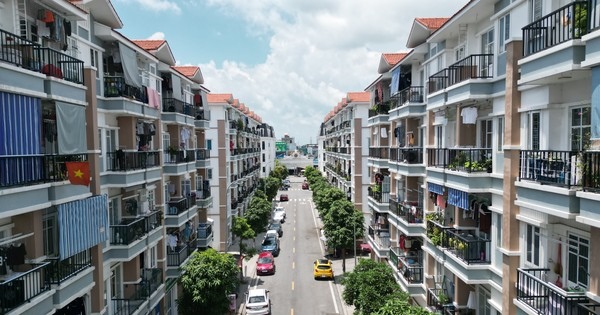 An Dong Social Housing in Hai Phong. |
Mr. Sinh attributed Hai Phong’s success to its dedication to allocating land funds for social housing development and its focus on prime locations within the city. The city has also invested in technical and social infrastructure for these projects. Additionally, Hai Phong has been proactive in reforming administrative procedures, with active participation from various departments and agencies. Many projects have been swiftly approved, appraised, and implemented, ensuring legal compliance. The city has also selected capable investors who can deliver high-quality projects, with some social housing projects even surpassing the quality of commercial housing.
Mr. Sinh expressed his hope that the city would build on its achievements and continue to make progress toward its social housing development goals. He also emphasized the importance of transparency and openness in the sale of social housing.
|
Social housing development has yielded positive results. As of now, there are 619 social housing projects across the country with a scale of 561,816 units. Among these, 79 projects with 40,679 units have been completed. Additionally, 128 projects with 111,688 units have been licensed and started construction, and 412 projects with 409,449 units have been approved in principle. |
Ngoc Mai
Astonishingly high price for old and dilapidated apartment buildings reaching nearly 200 million VND/m2, rivaling the most luxurious condominiums in Hanoi
Old collective apartments with prices starting from 100 million VND/m2 are usually the first-floor units that can be used for commercial purposes, while the upper-floor units are priced at 60-80 million VND/m2 for residential purposes.



